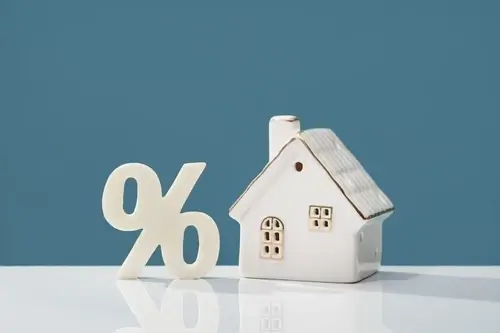
Amidst escalating home prices and rising interest rates, a notable trend is gaining traction among Gen Z and millennial homebuyers: "house hacking." This innovative strategy involves renting out a part or the entirety of a home to generate supplementary i
Jan 02, 2024 | Purchasing a Home

Today, we're about to embark on a journey that delves into the intricate world of financial wisdom concealed within the very walls of your home. We'll unravel the hidden tax treasures that homeownership bestows upon the wise. It's not merely about b
Dec 26, 2023 | Purchasing a Home

'Tis the season to be jolly and to be filled with gratitude and holiday cheer! As the year comes to a close, we want to take a moment to extend our warmest Merry Christmas wishes to all our wonderful customers who have made this year truly special. In the
Dec 21, 2023 |

With 30-year mortgage rates now topping 20-year highs, borrowers are looking to alternative loan options to save money on home loans. Adjustable rate mortgages (ARMs) are becoming more popular as homebuyers and refinancers look for lower introductory inte
Dec 19, 2023 | Purchasing a Home

Mortgage prepayment penalties can be a perplexing aspect of your home financing journey. Essentially, they are fees imposed by lenders when you pay off your mortgage earlier than agreed upon or exceed the specified payment limits. These fees are designed
Dec 12, 2023 | Purchasing a Home

Are you tired of juggling a pile of bills, from high-interest credit card debts to personal loans and auto payments? If so, there might be a financial strategy that could simplify your life: refinancing your mortgage to consolidate all those debts. In thi
Dec 05, 2023 | Refinancing a Home
Don’t Get a Mortgage from a Company that has “Bank” in its name
When buying or refinancing a home, most people don’t even know the first place to start the process. While some may know someone that knows someone, the majority turn to a bank that they have dealt with in the past or an advertisement they see on television for their first call. Others will turn to the internet and take a shot in the dark to see if they hit the target. Unfortunately for these people, after everything is said and “closed”, they realistically didn’t ever have a chance to really see the target. With all of the marketing gimmicks that you see (No closing costs, no money down, $5000 incentive if you pick this lender….. Blah, Blah, Blah!!!!!!), it is very difficult to understand what is the best path and the most sound financial decision when buying a home.
Before the crash in 2009, everybody played the rate game with lenders, and whoever gave the borrower the best rate won. What most people didn’t realize was that the higher the rate, the more money the bank would make. This was called a yield spread premium. The higher the rate, the higher the yield in the bank’s pocket. Well, that is not the case anymore. The best rate is not always the best decision. Since the controversial “Dodd Frank Act”, the rules have changed drastically, and what most do not realize, this is what changed the game for consumers in a very positive way. Instead of the bank getting paid more when they charge a higher rate, now the homebuyer gets the paycheck the bank used to get to put towards their own closing costs. Yield Spread premium is now called a “Lender Credit”. This means that you can now decide on the rate that best fits your financial situation. For example, at 4% interest on a 30 year conventional mortgage the lender will pay 1% of the loan amount towards your closing costs. If the rate is moved to 4.25%, then the lender will pay back 1.25% of the loan amount. At 4.5% they may credit you 1.5% and so on. Based on a $100,000 loan the credits to you would be $1000, $1250 and $1500 respectively.
How does this help you?
For someone that may have little money to put down at closing, taking a higher rate would enable them now to have the lender pay for some of the closing costs. On higher loan amounts, all of the closing costs can be paid by the lender. This enables many people that couldn’t buy a home before the crash to have many more options to be able to buy now because they do not have to bring as much money to the table.
NOW HERE IS THE KICKER!!!!!
All of the gimmicks that I mentioned above (No closing costs, no money down, $5000 incentive if you pick this lender….. Blah, Blah, Blah!!!!!!), well those are all based on the Lender Credit. As a broker, I am required by law to disclose the amount of lender credit for each rate, but the banks are not.
What does this mean?
This means that the bank can hide the money from you and put it in their pocket. This is how they advertise no closing costs or special incentives to use them. They are just raising your rate to cover everything without you having a say in what you want to do. If they are not offering incentives or showing a lender credit on your loan estimate, then, well they are just raking you over the coals. If you use a broker, that money is always yours, end of story.
The law has again allowed banks to be dishonest with your money. By using a broker, you will always know where every penny of your money is used.
Daniel Cason Lonestar Mortgage Solutions Texasmortgagedc.com